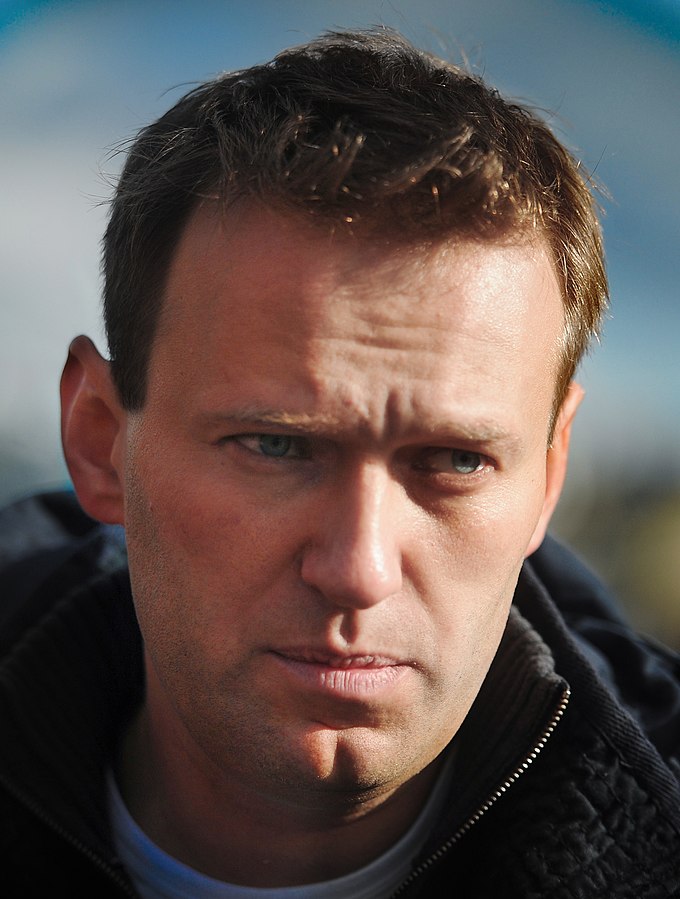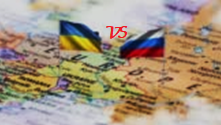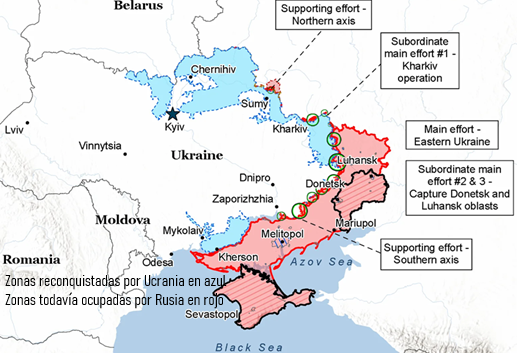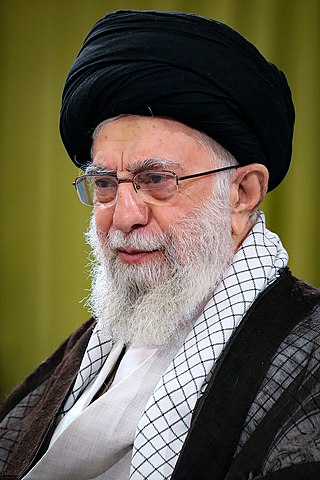
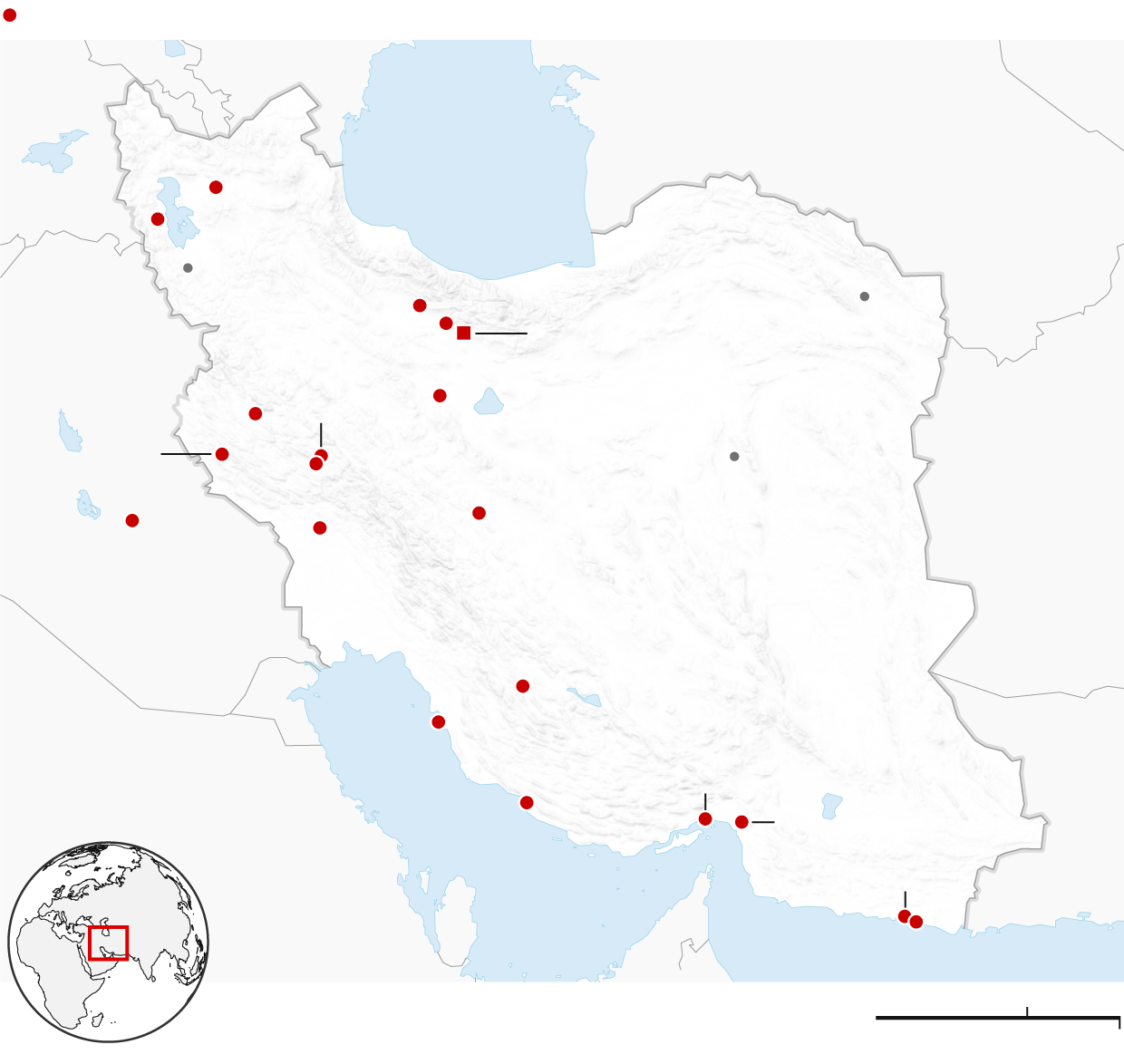
←
This map of Iran shows the points where air strikes against Iranian military and government installations have been concentrated since Saturday morning.
Washington DC, Feb.28 (DPnet).– Operation Thunderlion commenced at dawn this Saturday, with large-scale military operations against Iran conducted by the US and Israel. Massive bombings targeted Iranian military installations at five locations across the country, as well as government centers in Tehran. Reports indicate heavy shelling and smoke columns resulting from Israeli airstrikes that started at 8:15 AM
Meanwhlile, Iran is launching missile attacks against American bases throughout the Middle East region, bombing Jerusalem and several other targets on Israeli territory, as well as US bases in the neighboring Gulf countries, Bahrain, Qatar, United Arab Emirates, and Kuwait, which are on high alert after being hit by Iranian missiles aimed at those bases, but are not actively participating in the operations. Almost all Iranian missiles and drones are being intercepted by the air defense shield of Israel and American bases.
President Donald Trump has confirmed the start of "major combat operations" aimed at destroying missile capabilities, nuclear facilities, and the Iranian Navy to eliminate imminent threats. He stressed that Iran can never have nuclear weapons or long-range missile delivery systems, and called on the population to rise up against the regime: to "take charge of their fate."
Prime Minister Benjamin Netanyahu announced this joint operation with the US aimed at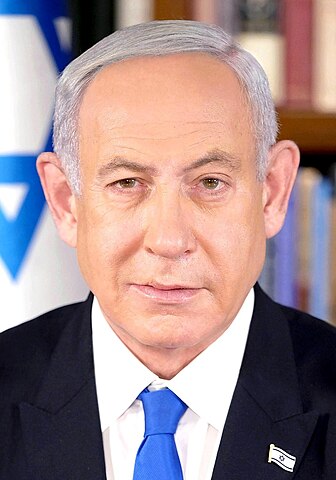 attacking strategic targets in Iran, including Supreme Leader Ali Khamenei and the Iranian President. In addition, the Israeli military claimed to have attacked several meetings of Iranian officials in Tehran during their joint operation with the US. "This morning’s attack took place simultaneously at several locations in Tehran, where senior political and security officials were gathered," the Israeli military said in a statement. The text adds that the army is currently assessing the attack results and preparing on multiple fronts in case the campaign extends to other operational theaters.
attacking strategic targets in Iran, including Supreme Leader Ali Khamenei and the Iranian President. In addition, the Israeli military claimed to have attacked several meetings of Iranian officials in Tehran during their joint operation with the US. "This morning’s attack took place simultaneously at several locations in Tehran, where senior political and security officials were gathered," the Israeli military said in a statement. The text adds that the army is currently assessing the attack results and preparing on multiple fronts in case the campaign extends to other operational theaters.
- Hits: 24



